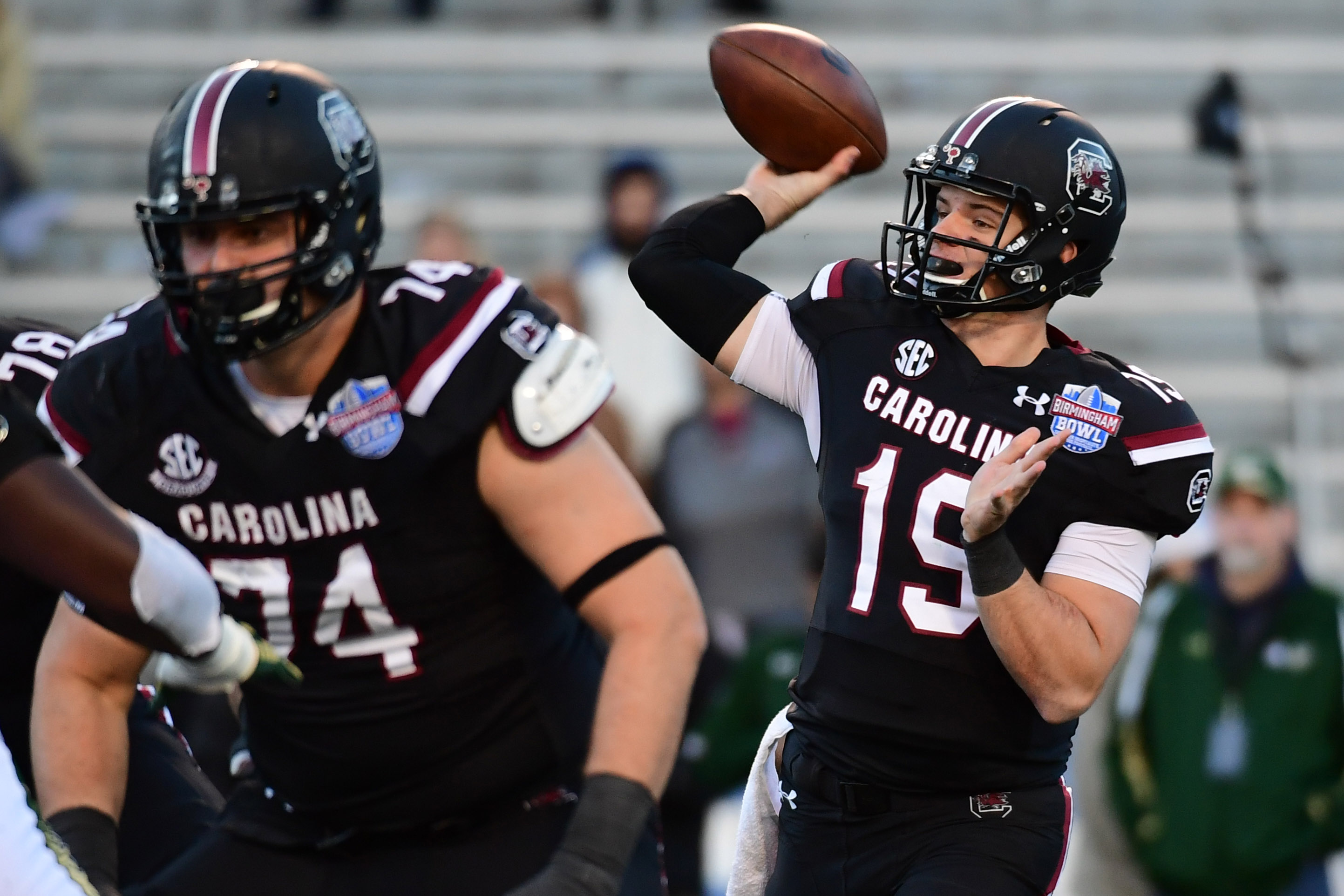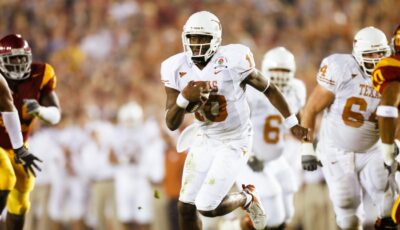
Which historical ‘little brother’ can break up the East’s Big 3?
By Joe Cox
Published:
It’s another season of SEC football, which means the rich (the SEC West) get richer, but the East gets more competitive. In the quarter century of the SEC’s divisional breakdown, the same three traditional powers — Florida, Georgia, Tennessee — have won 22 of the 25 East titles. The other four members of the East — Kentucky, Missouri, South Carolina, and Vanderbilt — have combined to win just three division titles, with Kentucky and Vandy having yet to win one.
But in 2017, things are up in the air.
Florida, Georgia and Tennessee have combined to win 22 of 25 East titles since the SEC adopted divisions in 1992.
Georgia is talented but has a coach still feeling his way. Florida has recent success, but has won despite, not because of, its offense and has lost a ton of talent from its defense. Tennessee is always a player in the race but hasn’t won it for a decade.
So if one of the four historically weaker East team is going to sneak up, who is it — and why (or why not?)
South Carolina
Case for: Will Muschamp brought solidity to a defense that had been brutal, and in 2017, his offense, most of which consisted of freshmen and inexperienced talent, now has a year of productivity under its belt.
Carolina returns its top passer, Jake Bentley, top running back and top four receivers. Rico Dowdle (rushing) and Deebo Samuel (receiving) could each surpass 1,000 yards, Hayden Hurst is a likely All-SEC tight end, and Bentley’s moxie was amazing. Add in the return of talented LB Skai Moore, who was lost to injury in 2016. Carolina beat Tennessee last year, and it’s not hard to imagine them repeating that feat.
Case against: Carolina’s offensive line was a problem in 2016, allowing 41 sacks, by far the worst in the SEC. If they can’t give the skill players time to make plays, it doesn’t matter how good those skill players are. Less obvious but still significant was the loss of senior kicker Elliott Fry. Carolina won its six games last year by 3, 13, 5, 6, 3, 10, and 13 points. They’re dealing with a small margin of error.
Kentucky
Case for: After floundering without an identity, dual-threat QB Stephen Johnson transformed the Kentucky offense into a run-heavy attack that racked up 234.2 yards per game on the ground, third in the SEC.
Kentucky returns Johnson and power back Benny Snell, who rushed for 1,091 yards and 13 touchdowns as a true freshman, as well as a talented group of linemen. Defensively, Kentucky started the year badly, but returns All-SEC caliber guys like LB Jordan Jones and S Mike Edwards.
Case against: That Kentucky defense is still troublesome, as it allowed 434.2 yards per game last year. UK lacks talent on the defensive line, and can be gashed in the run game. The loss of speed back Boom Williams and big-play receiver Jeff Badet could hurt as well. Finally, Kentucky is 1-59 vs. Florida and Tennessee in the past 30 years. That’s a tough trend to reverse.
Missouri
Case for: In a division that has gone increasingly back toward conventional offensive attacks, coordinator Josh Heupel’s high-octane passing game (295.4 yards per game in 2016, 2nd in the SEC) can catch some people flat-footed. Junior-to-be Drew Lock was one of the SEC’s top passers, and 1,000 yard rusher Damarea Crockett and 1,000 yard receiver J’Mon Moore are back. It’s also worth noting that Mizzou won the East in 2013 and 2014. Sure, the Tigers didn’t do it with these players, but a winning culture is a plus.
Missouri (2013, 2014) and South Carolina (2010) are the only ‘little brothers’ to break through against the East’s Big 3.
Case against: Defense, defense, defense. As many yards as Mizzou gained, its defense gave almost as many away. The Tigers were 13th in run defense, 12th in pass defense, and gave up 31.5 points per game, also 12th in the SEC. Furthermore, the Tigers face a general talent deficit. They will field the least talent in the SEC, and the margin isn’t terribly close.
Vanderbilt
Case for: It took three years, but Derek Mason imprinted his signature on this program. When the Commodores opened 2-4, few would have expected them to win at Georgia and over Tennessee to reach bowl eligibility. But they did exactly that, and return most of their offensive weapons in 2017. Solid QB Kyle Shurmur and durable back Ralph Webb, who became Vandy’s all-time leading rusher, are dependable building blocks.
Case against: Vandy lost LB Zach Cunningham, who might have been the best defensive player in the SEC. The offense picked its moments, but on the whole, still has a way to go. Vandy returns no 500-yard receivers, and Shurmur had more interceptions (10) than touchdowns (9) in 2016. Like Missouri, there is a talent gap issue at times too.
Joe Cox is a columnist for Saturday Down South. He has also written or assisted in writing five books, and his most recent, Almost Perfect (a study of baseball pitchers’ near-miss attempts at perfect games), is available on Amazon or at many local bookstores.







